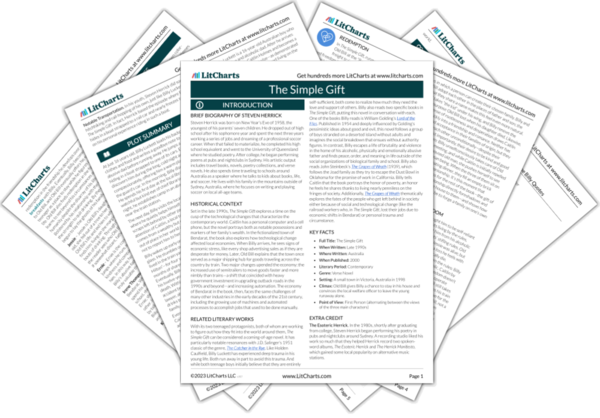In the sunshine. When
Caitlin arrives at the Freight Yard, she finds
Billy sitting in the sun reading a book. He offers her a pillow to sit on and pours her some coffee from his thermos. He’s reading
The Grapes of Wrath, which he tells Caitlin explores “the honor of poverty.” As she listens, her shame over her earlier feelings and her determination to sit with Billy in the sunshine grow.
